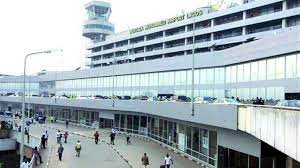
The aviation industry plays a crucial role in the economic development of any country, serving as a catalyst for growth in various sectors. In the case of Nigeria, a country with a large population and vast economic potential, the aviation sector has the power to significantly contribute to its economic progress. This article examines the aviation industry in Nigeria and explores its implications for economic development.
Overview of the Nigerian Aviation Industry
The Nigerian aviation industry comprises airlines, airports, air navigation services, and other related support services. The sector has witnessed notable growth in recent years, with increased investment, infrastructure development, and policy reforms. The country has several international airports, including Murtala Muhammed International Airport in Lagos and Nnamdi Azikiwe International Airport in Abuja, serving as major gateways for international and domestic travel.
Direct Economic Impact
The aviation industry has a direct impact on the Nigerian economy through various channels:
a) Job Creation: The sector provides direct employment opportunities for pilots, cabin crew, ground staff, maintenance personnel, and other aviation professionals. Indirectly, it also generates employment in related industries such as tourism, hospitality, and logistics.
b) Contribution to GDP: The aviation industry contributes to Nigeria's Gross Domestic Product (GDP) through the provision of air transport services, cargo operations, and associated activities. It stimulates economic growth by facilitating trade, investment, and tourism.
c) Revenue Generation: Airlines generate revenue through ticket sales, cargo services, and other ancillary sources. The Nigerian government also earns revenue through taxes, fees, and charges levied on airlines, airports, and passengers.
Facilitating Trade and Commerce
The aviation industry acts as a vital facilitator of trade and commerce, promoting economic activities within Nigeria and across international borders. Efficient air transport systems enable the movement of goods, services, and people, connecting businesses and markets. This connectivity enhances trade links, attracts foreign direct investment (FDI), and boosts exports, thereby strengthening the overall economic landscape.
Tourism and Hospitality
Nigeria boasts a rich cultural heritage, diverse natural landscapes, and vibrant tourist destinations. The aviation industry plays a pivotal role in promoting tourism and hospitality by providing convenient and accessible transportation options for domestic and international tourists.
Improved air connectivity attracts tourists, generates revenue, and supports the growth of associated industries such as hotels, restaurants, and tour operators.
Skill Development and Technological Advancement
The aviation industry necessitates the development of skilled professionals in various disciplines, including aviation management, engineering, air traffic control, and aviation security. To meet these demands, Nigeria needs to invest in quality education and training programs, ensuring a competent workforce capable of supporting the industry's growth.
Furthermore, the aviation sector drives technological advancements in areas such as aircraft design, navigation systems, and safety measures, leading to spill-over effects in other sectors of the economy.
Infrastructural Development
The growth of the aviation industry in Nigeria requires robust infrastructure, including modern airports, efficient air traffic control systems, and adequate maintenance facilities.
Investment in infrastructure not only supports the industry's operations but also creates opportunities for construction, engineering, and other related sectors. Upgrading existing airports and building new ones contributes to job creation, enhances connectivity, and strengthens Nigeria's economic competitiveness.
Challenges and the Way Forward
Despite the potential benefits, the Nigerian aviation industry faces several challenges that hinder its optimal growth and development. Some of the key issues include inadequate infrastructure, high operational costs, limited access to finance, regulatory constraints, and security concerns. To overcome these challenges, the Nigerian government, in collaboration with industry stakeholders, should focus on:
Infrastructure Development: Prioritizing investment in airports, air navigation systems, and related facilities to support the industry's expansion.
Policy Reforms: Reviewing and updating regulations to create an enabling environment for aviation businesses, encouraging competition, and attracting private investment.
Skill Enhancement: Establishing partnerships between educational institutions and industry players to develop specialized programs that cater to the industry's workforce requirements.
Safety and Security: Strengthening safety measures, enhancing security protocols, and adhering to international standards to build trust among passengers and investors.
The aviation industry in Nigeria presents immense potential for economic development. By focusing on infrastructure development, policy reforms, skill enhancement, and safety measures, Nigeria can harness the benefits of a robust aviation sector.
A thriving aviation industry will not only generate employment and revenue but also promote trade, tourism, and technological advancements, contributing to Nigeria's overall economic growth and development.




















